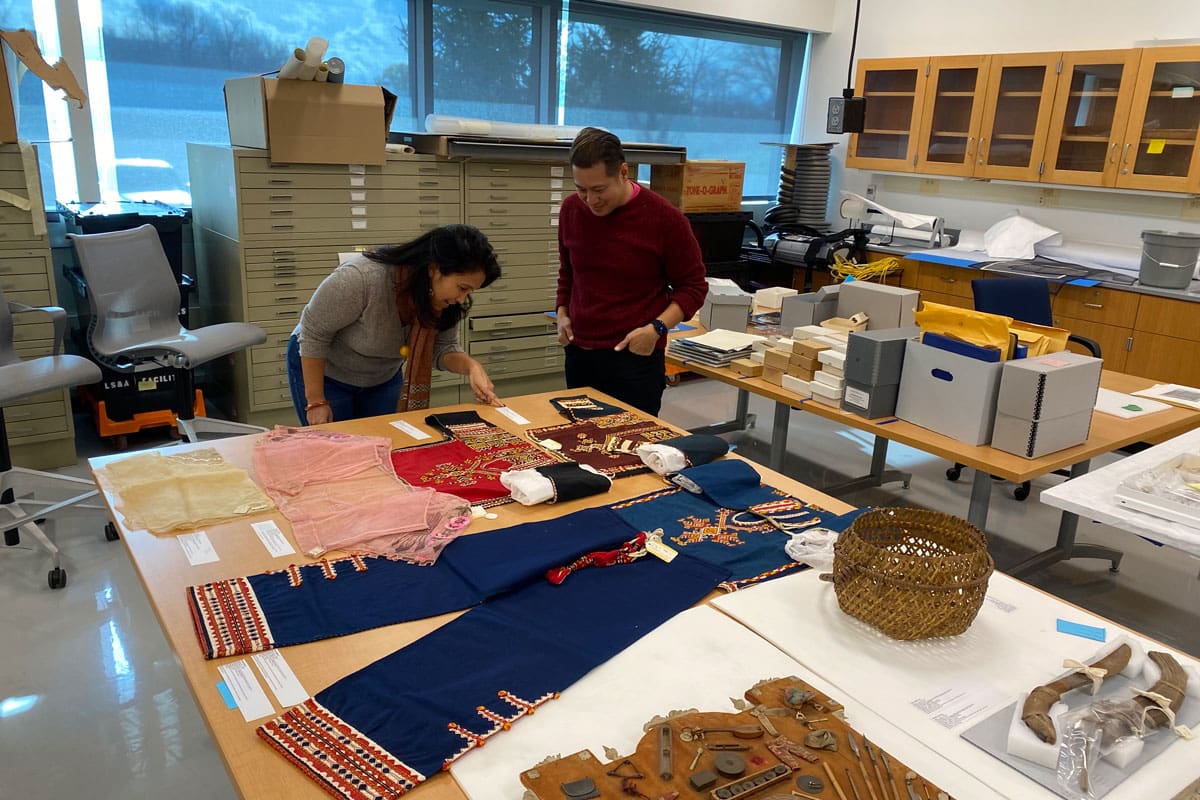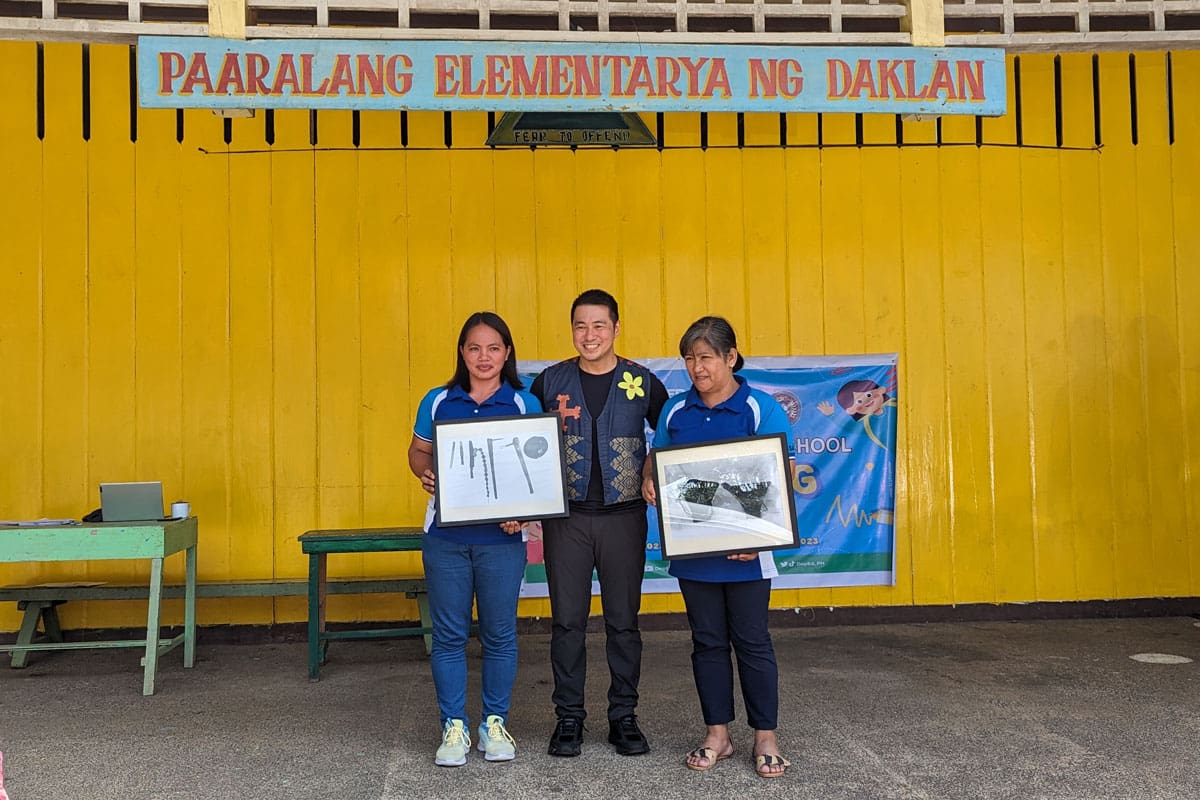Our Research Methodology
Engaging Community Voices
We organized our focus groups around specific concerns and expertise.
We organized our focus groups around specific concerns and expertise. We aimed to include diverse perspectives from Filipino, Indigenous, and Filipino diasporic communities, as well as from those who could speak to institutional capacities and protocols.
Working in consultation with our External Advisory Board, we set an agenda for the research and identified important stakeholders to be involved in conversations about the human remains. With these conversations in mind, we developed our focus group discussion protocols for the following:
Focus Group 01
External Advisory Board
Focus Group 02
Museum and Repatriation Experts
Focus Group 03
Academic and Institutional Experts in the Philippines
Focus Group 04
Local Communities/ Indigenous Representatives
Information about the provenance of the human remains was provided to focus group participants in advance in order to facilitate an informed discussion. We also found it to be helpful to distribute an agenda for the focus groups in advance so participants, especially those who had not previously engaged in focus groups, could adequately prepare themselves for the discussion.
Our Focus Groups: Bridging Diverse Insights
Focus Group 01
External Advisory Board
Our inaugural session brought together a diverse advisory board, comprising representatives from local Filipino American organizations, Filipino community elders, and members of Filipino Indigenous Peoples (IP) communities both in the US and the Philippines. This intergenerational group provided essential insights about how to involve Indigenous communities in our work as well as what existing precedents and protocols we should look to.
Focus Group 02
Museum and Repatriation Experts
Curators and individuals experienced in repatriation processes from the US to the Philippines were part of this session. Their expertise enriched our understanding of both legal and ethical protocols around human remains and their real-world applications. We took away lessons from previous repatriation processes, were able to make comparisons with other ethical protocols regarding human remains (such as the Native American Graves Protection and Repatriation Act), and were able to learn from past experiences working with the Philippine government on repatriation.
Focus Group 03
Academic and Institutional Experts in the Philippines
This session saw participation from experts and officials representing universities, museums, and governmental institutions in the Philippines. Their contributions contextualized the academic and institutional facets of our work, particularly with regard to the prospect of repatriation.
Focus Group 04
Local Communities/Indigenous Representatives
Local Filipino community and Indigenous representatives from both Philippine and US contexts shared their invaluable perspectives. Their insights helped shape our understanding of ethical implications and cultural sensitivity, community involvement and consultation, the role of local governments and organizations, and the challenges and responsibilities that come with the prospect of repatriation.
Focus Group Sessions: Structure,
Exercises, and Prompts
Generating Inclusive Insights: Otherwising
To foster an environment of visionary thinking and unhindered idea exchange, we initiated an “otherwising exercise,”
which was inspired by museum studies scholar Sharon Macdonald, to start thinking of alternative methods and possibilities for cultural heritage work, that is: “to think and do museum and heritage practice otherwise – that is, to think and do museums and heritage differently from the ways in which they have more recently or more usually been done. This ‘otherwising’ is thoroughly anthropological. It draws from a disciplinary approach that seeks to explore diverse ways of doing and thinking – to learn from other ways of being wise – in order to rethink, re-do, and transform, what might otherwise be taken for granted or left unexamined.” This exercise posed two control questions across all groups and recorded individual responses:
Question 01:
What, to you, are human remains?
We asked this question in an effort to understand the more existential aspects of how different groups conceptualize the meaning and definition of human remains. We found that respondents had diverse definitions and understandings of the concept, sometimes according to disciplinary perspectives, but not always.
Question 02:
What is the best possible outcome for these human remains? What would this look like for you in 10 years if constraints, in terms of money, time or laws or legal regimes were removed?
This exercise, inspired by the design thinking concept of “visioning,” encouraged participants to transcend limitations and share transformative ideas. The responses, shared on digital sticky notes, became touchpoints for dialogue and innovation.
Deeper Exploration: Customized Focus Group Questions
Moving beyond the “otherwising exercise,” we engaged each group in more tailored questions, including:
External Advisory Board
What legal, ethical, and cultural protocols are relevant or should be taken into consideration? What protocols should receive priority?
How do we involve and consult Indigenous communities in our efforts?
Museum and Repatriation Experts
What are your recommendations based on your experience? What would you have done differently during the repatriation process?
How does repatriation in the Philippines compare with efforts carried out under NAGPRA?
What was your experience working with the Philippine government?
Academic and Institutional Experts in the Philippines
What are the current laws and policies governing the repatriation of human remains in cultural heritage institutions?
Describe the repatriation process: What agencies are involved? Please walk us through the process.
Local Communities/Indigenous Representatives
What do you see as the necessary steps, or barriers, to physical repatriation of human remains?
What does it mean to you that the human remains from the Philippines are at the University’s Museum?

ReConnect/ReCollect co-PIs Deirdre de la Cruz and Ricky Punzalan look at textiles from U-M Museum of Anthropological Archaeology, 2022.
Collective Vision: Team Reflection
Following the focus group series, we convened the ReConnect/ReCollect team for a final visioning session. Drawing on insights garnered during the focus groups, we participated in a collective “otherwising exercise” ourselves. This enabled us to collectively envision optimal outcomes and pathways towards repair.
Documentation and Accessibility
All focus group sessions were recorded, transcribed, and summarized. Through this methodology, we aimed to elevate community voices, drive meaningful change, and uphold ethical stewardship of Philippine human remains at UMMAA.

Handing over photographs from UMMAA’s collection at Daklan Elementary, 2023
Further Considerations
This research yielded invaluable insights into the diversity of perspectives on Philippine human remains in museum collections. It also tested the protocol itself. Here are some additional insights and recommendations for improvement:
Recruitment is an important part of the research itself. Knowing whom to invite, or who would best know whom to invite, entails layers of evaluation and judgment that need to be acknowledged. Community consultation should be considered an iterative and incomplete process.
Participants should be recruited to best align with the diversity of the collection. IPs from one region should not be asked to speak for all IPs or for other IP communities.
Lack of knowledge or documentation about the human remains in your collections will limit the depth of your conversation.
Consideration should be given to the range of experience or lack thereof with the focus group format.
Although Zoom can greatly facilitate discussion with a wide range of stakeholders, it is inherently limiting where access to technology, varying time zones, and less formal means of communication is concerned. Ideally, consultation would take place in person.
Careful consideration should be given to how to interpret and present your data, as well as to what end. Consider including “exit surveys” to gain insight into how participants themselves interpreted the focus group conversations, and try to involve team members in the reading and summary of transcripts.
